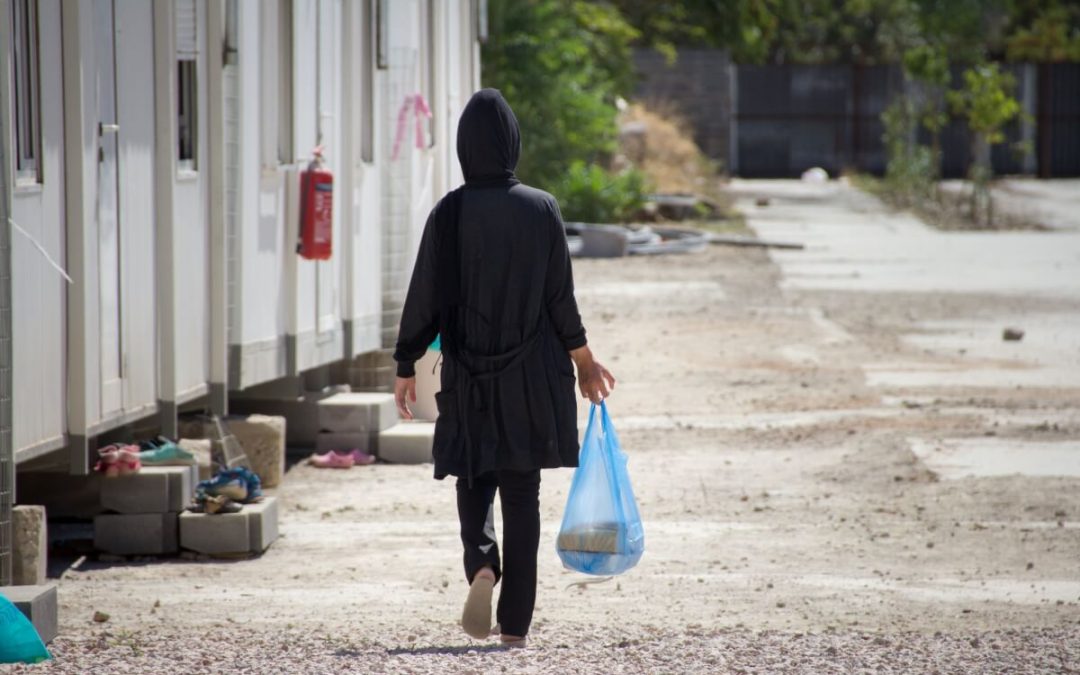The International Protection Bill presented by the Greek Ministry of Citizen Protection brings about several restrictions on individual rights and procedural guarantees in the Greek asylum system.
The bill tabled to Parliament on 21 October 2019 following a five-day consultation period and expected to be adopted in the coming days, consolidates rules on qualification, reception and the asylum procedure into a single legislative instrument. The government has explicitly tied the bill to its objectives of tightening asylum procedures and increasing returns. Among other measures, the International Protection Bill sets out the following changes:
Residence permits: Article 24 reduces the duration of residence permits for subsidiary protection to one year, as opposed to three.
Detention of asylum seekers: Article 46 introduces several provisions liable to expand detention measures. It allows for the possibility to detain persons who have previously applied for asylum at liberty, abolishes the mechanism of ex officio review of detention orders, and prolongs the maximum duration of detention of asylum seekers to 18 months – in which previous periods of pre-removal detention are not counted.
Access to the labour market: Article 53 introduces a six-month time limit before access to the labour market is granted to applicants, as opposed to the current rules on immediate access to employment.
Personal interview: Under Article 77, the personal interview can be conducted by authorities other than the Asylum Service, namely the Police and Armed Forces, in cases of large numbers of arrivals of asylum seekers.
Accelerated procedure: Under Article 83(9), the accelerated procedure may be applied to cases foreseen by Article 31(8) of the recast Asylum Procedures Directive but also to vulnerable applicants.
Safe third countries: Article 86 sets out rules for the establishment of a list of safe third countries by way of Joint Ministerial Decision.
Right to remain on the territory: Article 104 removes the automatic suspensive effect of appeals for claims dismissed as inadmissible or rejected in the accelerated procedure. The applicant will have to file a separate request to the Appeals Committee for suspensive effect to be granted in order for removal from the country not to be effected pending the examination of the application at second instance.
Content of appeals: Article 93 requires asylum seekers to state the full grounds for appealing a first instance decision for their appeal to be considered admissible.
Composition of Appeals Committees: Article 116 brings about another modification of the composition of Appeals Committees, following the composition introduced in June 2016. According to the bill, the Committees are to be composed by three administrative judges. A single-judge composition is also foreseen for cases such as those processed under the accelerated procedures.
Deep concerns have been expressed by UNHCR, the Ombudsman, and the National Commission for Human Rights, civil society organisations and the Athens Bar Association about the objectives of the bill, the compatibility of its provisions with domestic and international law, and the administrative pressure it is liable to create on asylum authorities. Opposition parties (SYRIZA, KINAL, KKE) have raised similar concerns during parliamentary committee discussions on 29 October 2019.
For further information:
- Refugee Support Aegean, Comments on the International Protection Bill, 21 October 2019
- Greek Council for Refugees, Comments on the draft bill “On International Protection”, 23 October 2019
- Amnesty International, Greece: Proposed bill on asylum downgrades EU and international law standards on refugees’ protection, 24 October 2019
- AIDA, Country Report Greece, 2018 Update, March 2019
*This information was first published by AIDA, managed by ECRE.
Photo: (CC) International Federation of Red Cross and Red Crescent Societies, August 2015
This article appeared in the ECRE Weekly Bulletin . You can subscribe to the Weekly Bulletin here.

